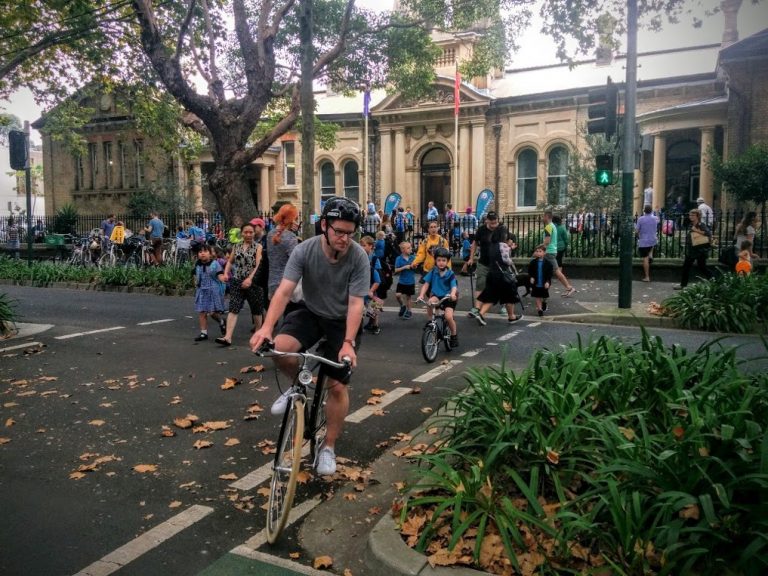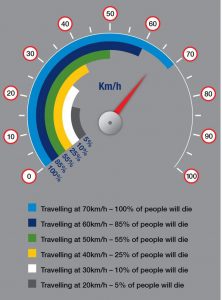Recent speed limit reductions in parts of Melbourne and Brisbane are expected to improve community safety and well-being.
Brisbane City Council will reduce the speed limit to 40km/h around dozens of suburban shopping and dining precincts. While in Collingwood and Fitzroy in Melbourne, the speed limit will drop to 30km/h. Bicycle NSW supports decreasing speed limits in NSW residential areas to increase safety and community engagement, and also decrease noise and pollution.


Statistics show that at 50km/h, the average speed of suburban streets in Australia, the risk of a pedestrian or cyclist dying in an accident with a motor vehicle is 55%. But at a 40km/h speed limit this number falls to 25% and for 30km/h it is 5-10%.
In Denmark, Holland and Switzerland, where 30km/h speed limits apply in residential neighbourhoods, rates of fatality in accidents are less than 2%.
Reducing speed limits only adds seconds, not minutes, to average journey times, and saves drivers money. This is because time spent braking is reduced by 14%, time spent changing gears drops by 12% and fuel consumption drops by 12%
Bicycle NSW has also produced a resource showing how reduced speed neighbourhoods save money for government in a way that works well for drivers and residents.
“Reducing speed limits in residential streets to 30km/h will mean roads are less of a barrier to social interaction between neighbours and safer for children travelling around their community.” said Kim Lavender, Bicycle NSW Communications Manager.
When more parents feel confident that that it is safe to allow their children to ride or walk to school and sport, they don’t have to be driven. That helps take more cars off the roads at peak times easing congestion in NSW. Bicycle NSW looks forward to results from Victoria and Queensland, and to upcoming trials of similar restrictions in NSW.
